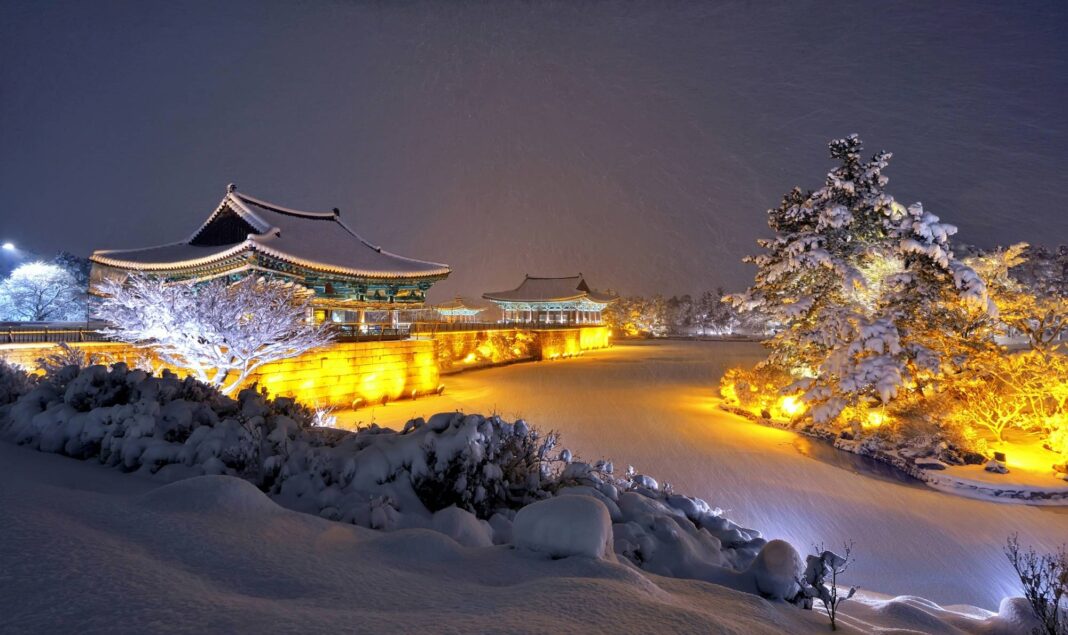1. Ancient History of Gyeongju
Ancient History of Gyeongju is a long and fascinating story of a city in South Korea that has been a center of culture, politics, and economics for centuries. In the early history of the region, Gyeongju was the capital of the Gaya confederacy from the 2nd century BC until the 5th century AD. During this time, it served as a center of trade and culture. The Gaya kingdom was replaced by the Silla dynasty in the 7th century and the city flourished under its rule. Gyeongju became the capital of the unified Silla kingdom in the 9th century and it was during this period that it reached its peak of power and prosperity. Even after the fall of the Silla dynasty in the 10th century, Gyeongju remained a center of culture and politics. Today, the city is a popular tourist destination in South Korea, offering visitors a glimpse into the past with its many historic sites and monuments.
2. Modern History of Gyeongju
Modern History of 개경주 is the history of the city of Gyeongju from the mid-1800s to the present day. Gyeongju is an ancient city located in South Korea and is known for its long and rich history. From the late Joseon dynasty to the Japanese colonial period, Gyeongju played an important role in Korean history. In the modern era, Gyeongju has grown to become a bustling city with a strong economy and a vibrant culture. This city is home to some of South Korea’s most famous historical sites such as the Gyeongju National Museum, the Bulguksa Temple, and the Cheomseongdae Observatory. Gyeongju is also known for its festivals and events, such as the Gyeongju Cherry Blossom Festival and the Gyeongju World Culture Expo. The modern History of Gyeongju is an interesting and vibrant part of South Korea’s history.
3. Cultural Sites in Gyeongju
Gyeongju, South Korea is home to a wealth of cultural sites, many of which date back centuries. These sites include ancient tombs, temples, palaces, and ruins that provide an insight into the history of the region. Gyeongju was once the capital of the Silla Kingdom, and many of the historical sites are well preserved. Bulguksa Temple, Seokguram Grotto, and Anapji Pond are among the most popular cultural sites in Gyeongju. Visitors can also explore the Gyeongju National Museum, the Bomun Tourist Complex, and the Gyeongju Historic Areas. These sites offer a unique opportunity to explore the beauty and culture of the region and to gain an appreciation of Korea’s rich history.
4. Traditional Food of Gyeongju
Gyeongju is a city in South Korea that has a long and storied history, and its traditional food is reflective of this. Gyeongju-style cuisine is known for its light, fresh flavors and use of local ingredients. Common dishes include Galbijjim (braised beef in soy sauce), Bindaetteok (mung bean pancake), Gyeongju-style Bibimbap (a rice bowl with assorted vegetables), and Nakji-bokkeum (stir-fried octopus and vegetables). Gyeongju’s traditional food is also known for its variety of side dishes, such as Gamja-jeon (potato pancakes) and Gyeran-jjim (steamed egg custard). These side dishes are often enjoyed along with Gyeongju’s famous local delicacy, Heotjesabap (mixed rice with various ingredients). All of these dishes are sure to delight the palate and give a taste of Gyeongju’s long and vibrant history.
5. Sports and Activities in Gyeongju
Gyeongju is a beautiful city in South Korea renowned for its stunning natural beauty and rich cultural heritage. It is also home to a variety of exciting sports and activities for both locals and visitors alike. For the adventurous, there are plenty of activities available such as hiking, biking, and camping in the nearby mountains and national parks. There are also a number of beaches and water sports such as surfing, swimming, and kayaking. For those looking for a more leisurely experience, Gyeongju offers plenty of opportunities to relax and enjoy the culture. Visitors can take part in traditional Korean activities like tae kwon do and archery or visit the many historical sites, such as the UNESCO World Heritage-listed Bulguksa Temple. Gyeongju is also home to many local sports clubs and teams, such as baseball, football, and basketball. There are also plenty of opportunities to enjoy activities like golf and horseback riding. So no matter what type of sports and activities you’re looking for, Gyeongju has something for you. Come and explore all the city has to offer and make memories that will last a lifetime.
Conclusion
Gyeongju is a city that rewards its visitors with a unique cultural experience. It is a city that provides a glimpse into the past with its ancient monuments and archaeological sites, and a glimpse into the present with its vibrant modern culture. Gyeongju is a city that is sure to leave a lasting impression on its visitors and create a lifetime of memories.








